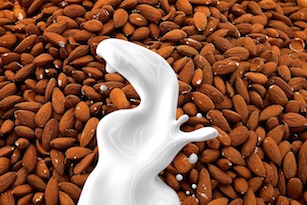When yet another customer in front of you in the queue orders a cappuccino with almond milk instead of regular cow’s milk, can you not also but wonder how the trend for milk alternatives has become so popular? And should you also be drinking them?
By Jana du Plessis
Daily dose of vitamin D (and other nutrients)
Cow’s milk is a good source of vitamin D and calcium, both of which contribute to bone growth and development. Potassium, the nutrient bananas are known for, can be linked to a reduction in blood pressure and ultimately leads to a healthier heart. B-vitamins provide energy, and protein forms the building blocks for your muscles. Combine all of these nutrients in a glass of creamy milk and you have yourself a well-balanced, low-sugar drink to sip on. Still, there must a reason why some would pass this up…
What’s wrong with cow milk, you ask?
One of the great arguments against cow’s milk is the sugar, called lactose, it contains. Lactose have become a common source of food-intolerance due to many people lacking enough of the enzyme lactase, which breaks lactose down. As a result, the milk’s sugars are left behind in the small intestine, leading to fermentation and uncomfortable symptoms such as bloating and gas. Aside from those steering clear of cow’s milk due to a vegan or animal-free diet, a sensitivity to milk necessitates a change in dairy consumption.
Still going nuts for milk
Of course no-one can imagine their morning cuppa without a spash of liquid white gold (not to mention that after-dinner cozy hot chocolate). So, the quest for milk substitutions was launched in full force and the findings did not disappoint. Besides soy milk, which has been around for many years already, nut and seed milks are proving to be a delicious way to add some creamy deliciousness to a flavoured drink. A simple blend of water and nuts or seeds is strained to produce a milky liquid that very much resembles the real McCoy.
The nutritional difference
Nut, seed and soya milks prove to be the better choice for those suffering from lactose intolerance, but for others it’s important to note that they do not contain the same nutritional value as the cow’s variety. On the one hand, nut and seed milks generally have a much lower protein and calcium content. While on the other hand, these milk alternatives have no cholesterol or saturated fats as cow’s milk has. Always first consider your personal nutritional needs, and if subbing regular milk with nut milks will benefit your health before removing a food item with potential nutritional benefits.




